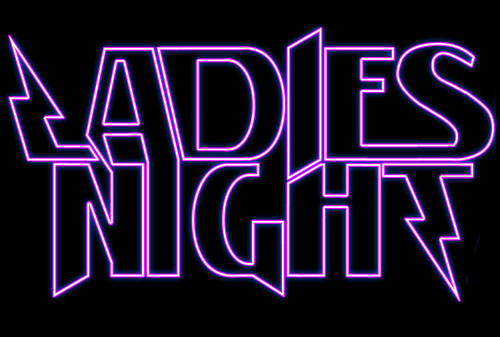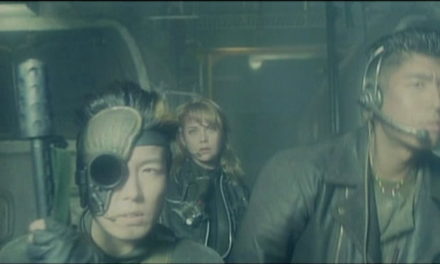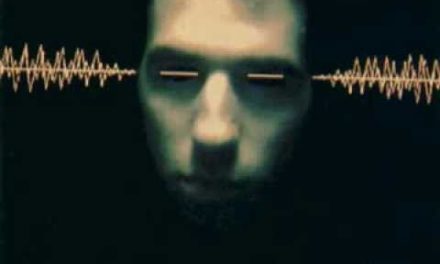Join us gentle reader, as ID:UD’s resident expert on 90s industrial Sharon Kyronfive escorts us through still more selections from that storied decade.
I’m going to level with you people: I love me some ladies. This is because I am one. I happen to think we’re pretty rad. The entire genre of industrial music, as you probably know, was co-founded by a lady. And 30 years later, I still think it needs more of us.
As a genre we’re lead by a reflexive need to confront and experiment. And our weapons of choice are often synthetic. This is not a landscape always so alluring to women—and the boys club atmosphere of industrial hasn’t always helped. So when ladies have crashed this particular party, it often stirs the pot in interesting and unusual ways. And I think the ‘90s have had many fine examples. Read on.
Aurora, “In a Minute”
Aurora is the side-project of Project Pitchfork’s Peter Spilles and (then-girlfriend) Patricia Nigiani. Although often called darkwave (I hate that term, by the way), the music, to me, feels 100% Project Pitchfork with about 75% less of Spilles’ Laibach-has-nothing-on-my-growl. In fact, the entire Aurora debut, 1993’s The Land of Harm and Apple Trees, has all the flavours of Project Pitchfork in their early prime, threaded with Nigiani’s plaintive, almost childlike voice. This track, in particular, evokes for me the percussive nature of “The Island,” while the vocals hint at “Souls,” on which Nigiani also sang. (Unsurprisingly, the Souls/Island EP also came out in 1993.) Somewhere in the midst of the release of their second album, The Dimension Gate, they changed their name to Aurora Sutra. Afterward, Spilles and Nigiani appear to have parted ways; Spilles continuing on with Project Pitchfork and Nigiani continuing on with Aurora Sutra without him. Nigiani continued on to work with Rodney Orpheus of Cassandra Complex fame, both as Aurora Sutra and in his project Sun God, before evidently going dormant in the 2000s. Spilles, in contrast, has remained remarkably productive as Project Pitchfork, and later started the substantially less interesting side-project Santa Hates You with a different female vocalist. But Aurora’s debut, The Land of Harm & Appletrees, is still a record I return to periodically for its naive charm and innocence. It remains, for me, a time capsule of that era of Project Pitchfork—and we have so precious little of that era I’ll take anything I can get.
La Floa Maldita “Secrets & Dreams”
Guido Fricke has had a long, venerable career with industrial music, first as a member of Second Voice, secondly as La Floa Maldita, and thirdly as a contributing musician in a veritable revolving door of bands. It’s no small statement when I say “Secrets & Dreams” is one of my all-time favorite tracks of the ‘90s. Although it appears on La Floa Maldita’s final release, 2003’s Salut Jacques, “Secrets & Dreams” first appeared on the band’s 1999 EP Voyage, Voyage, making it eligible for our purposes here. I think industrial has struggled with female vocals because the driving nature of the music often calls out to be anchored by a heavier-handed vocal (think 99 Kowalski on Front 242’s “Animal (gate)”). What La Floa Maldita succeeded with here is finding a sublime balance between its musicianship and the ephemeral quality of Rhea’s voice. Sadly, La Floa Maldita disbanded not long after the release of Salut, Jacques—and it’s a real shame. I feel like they had plenty more to discover.
Decoded Feedback “This World”
In the world of ‘90s industrial, if you saw a woman on-stage with a band she was frequently either dancer, vocalist, or girlfriend-in-sexy-outfit-not-actually-playing-anything behind a synthesizer. Which is one of the reasons why Decoded Feedback was such a breath of fresh air. Because there on stage, holding her own against vocalist Marco Biagiotti’s full-Elvis strut, was the commanding, buzz-cut sensual presence of Yone Dudas. And this is a woman who can definitely play her keyboards. This track, from 1996’s Bio-Vital, is probably my favorite from their ‘90s era, effortlessly harnessing that dramatic, melodic, horror-inflected sound that was so popular at the time. Culturally—and this is not unique to industrial—I think we have this tendency to be inherently distrustful of the notion that women can write music or demonstrate credible musicianship. I’m so grateful that the double-digit career of Decoded Feedback—still as strong as ever—stands in marked contrast to that fallacy.
The Dust of Basement “God’s Own Fairytales”
I’m convinced there will literally never—and I mean never—be another band again that sounds like The Dust of Basement. Juxtaposition was always this band’s calling card—and their strength. All of the tracks on the band’s debut, 1996’s Remembrances, are elevated by the tension between their seemingly disparate parts. This is true whether it’s the driving percussion that competes with the haunting melodies or the interplay between vocalist Axel’s Project Pitchfork-esque growls with the sublimely angelic quality of vocalist Birgitta Behr. (Side note: it was an utter delight to discover Birgitta Behr is as angelic as a human being as she is a vocalist.) “God’s Own Fairytales,” in my opinion, is the utter heights of their sound, but I should note if this track holds any appeal for you, you should probably seek out the whole record—you won’t be disappointed. These days The Dust of Basement are amicably disbanded, but If you want more of Birgitta Behr’s vocals, check out her side projects Calandra and Plas-tik. And if you like the music, songwriter Sven Wolff is still going strong with his project Patenbrigade Wolff. All are highly recommended. (And thanks, Julio, for introducing me to this band.)
Thanks for playing along. I’ll be back in another month with more underloved gems of the ‘90s.







This is the first time I’ve ever recognized bands from one of these 199x article. Sharon you’re getting a little too mainstream for me… 😉